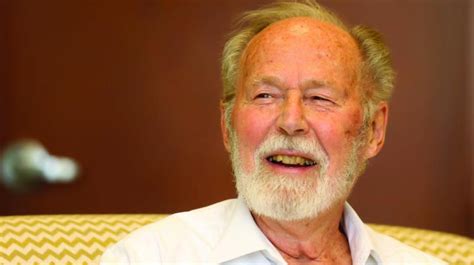A Quote by Mikhail Gorbachev
What happened to the Soviet Union happened mainly for domestic reasons. It was a failure of the model based on a command economy and dictatorship. The rejection of freedom and democracy, the decisionmaking monopoly of one party, and the monopoly of one ideology all had a chilling effect on the country. That model turned out to be incapable of making structural changes. It did not open up ways for initiative and was overly centralized.
Quote Topics
Based
Centralized
Changes
Chilling
Command
Command Economy
Country
Democracy
Dictatorship
Did
Domestic
Economy
Effect
Failure
Freedom
Had
Happened
Ideology
Incapable
Initiative
Mainly
Making
Model
Model T
Monopoly
One Party
Open
Out
Overly
Party
Reasons
Rejection
Soviet
Soviet Union
Structural
Turned
Union
Up
Ways
Related Quotes
Political monopoly and economic monopoly are two sides of the same coin, two heads of the same monster. Despite all the claims to the contrary, the essential ideology of Neo-Conservatism is to preserve the status quo, with all of its injustices. Its public relations experts call for "freedom and democracy" without a framework of higher values. They fail to comprehend the need for a paradigm of justice and therefore are blind to what concerns most of the people in the world. This failure is the taproot of terrorism.
Look at Ayatollah Khomeini's revolution and the slogans that they used: anti-imperialism; anti-colonialism; the struggle of the have-nots against the haves; the state monopoly over economy, which was very much patterned after the Soviet Union. All of these things did not come out of Islam. Islam is not that developed.
During the 1930s, some of the leading intellectuals in America condemned our economic system and pointed to the centrally planned Soviet economy as a model -- all this at a time when literally millions of people were starving to death in the Soviet Union, from a famine in a country with some of the richest farmland in Europe and historically a large exporter of food.
If a company is not a monopoly, then the law assumes market competition can restrain the company's actions. No problem. If a monopoly exists, but the monopoly does not engage in acts designed to destroy competition, then we can assume that it earned and is keeping its monopoly the pro-consumer way: by out-innovating its competitors.
25 million of Russian people suddenly turned out to be outside the borders of the Russian Federation. They used to live in one state; the Soviet Union has traditionally been called Russia, the Soviet Russia, and it was the great Russia. Then the Soviet Union suddenly fell apart, in fact, overnight, and it turned out that in the former Soviet Union republics there were 25 million Russians. They used to live in one country and suddenly found themselves abroad. Can you imagine how many problems came out?
The first year I was in office, only about 800 people came out of the Soviet Union, Jews. By the third year I was in office... second year, 1979, 51,000 came out of the Soviet Union. And every one of the human rights heroes - I'll use the word - who have come out of the Soviet Union, have said it was a turning point in their lives, and not only in the Soviet Union but also in places like Czechoslovakia and Hungary and Poland [they] saw this human rights policy of mine as being a great boost to the present democracy and freedom that they enjoy.
What with the political monopoly, the Cheka and the Red Army, all that now existed of the 'Commune-State' of our dreams was a theoretical myth. The war, the internal measures against counterrevolution, and the famine (which had created a bureaucratic rationing apparatus) had killed off Soviet democracy. How could it revive, and when? The Party lived in the certain knowledge that the slightest relaxation of its authority would give day to reaction.











































